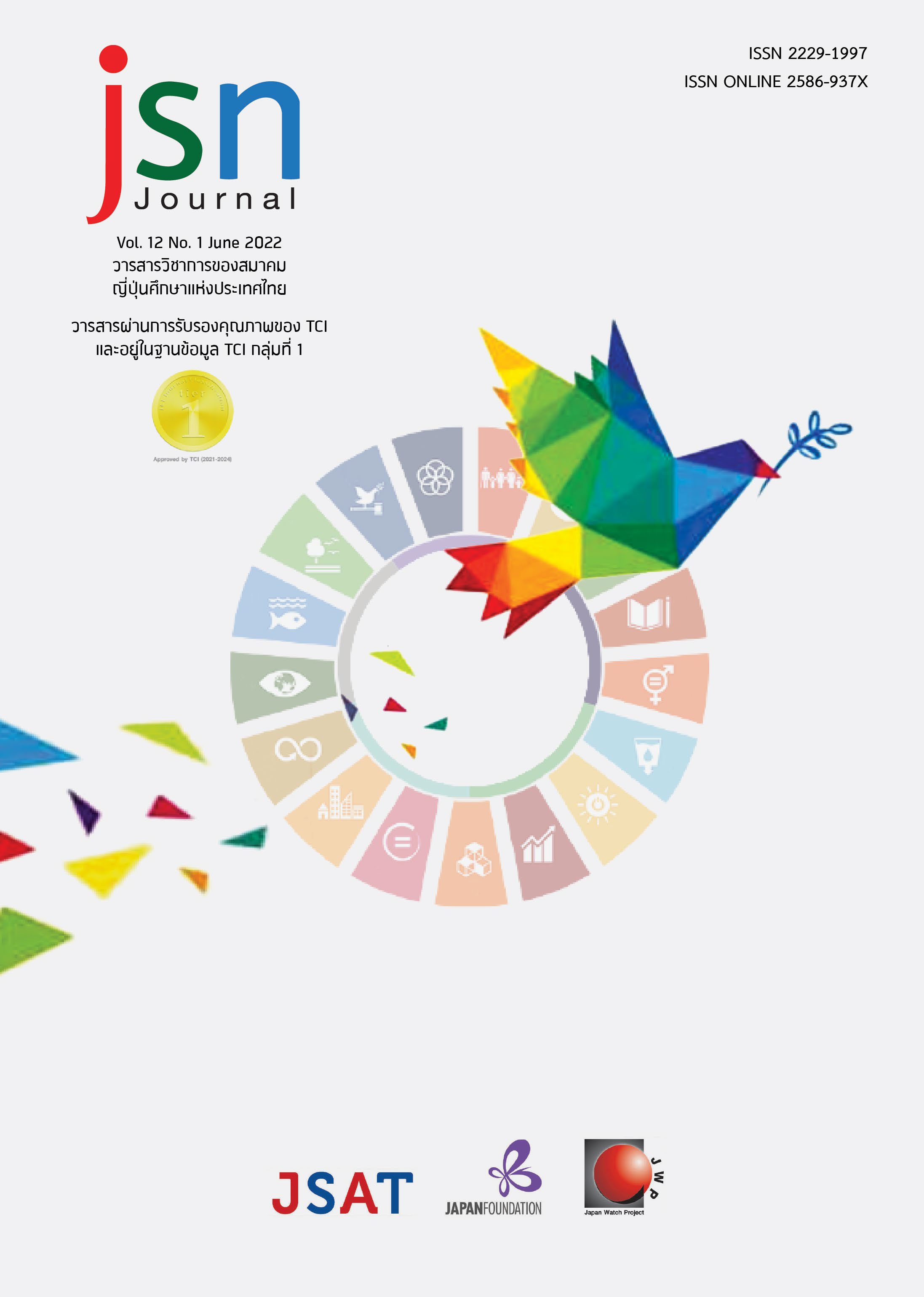The Future of International Higher Education Aiming for SDGs: Collaboration with Japanese Studies Students around the World
Main Article Content
Abstract
We have been facing the COVID-19 pandemic and at the same time the larger crisis of exceeding “Planetary boundaries” as well. To solve these complex, serious, global problems, international cooperation is indispensable. Education provides a basis for international cooperation and it is through education that we can develop scientific viewpoints and knowledge, our consciousness as a global citizen, and Global Competence. Global Competence is defined in, and added to the evaluation metrics of, the Programme for International Student Assessment (PISA 2018) of the OECD. The development and improvement of Global Competence are also desired in higher education in a wide variety of fields. In this paper, from the above understanding, an overview and consideration of Online International Exchange Education are provided. The online method has prevailed during the COVID-19 pandemic instead of in-person International Exchange Education, traditionally useful for the development of Global Competence in international education. Furthermore, Collaborative Online International Learning (COIL) between Japanese major students at Burapha University and students at Kagoshima University is presented. It is reported that both groups were well able to gain the benefits of international exchange education even through online interaction. From this example, it became clear that both groups are mutually valuable as a collaborative learning partner because overseas students majoring in Japanese studies have strong interest in Japan and their interest is also significant for Japanese students. Therefore, it is pointed out that it will be meaningful that Japanese universities utilize this special relationship with overseas students majoring in Japanese studies positively, and construct the multilateral human network to provide transnational co-learning opportunities for students. This network will contribute to the international education networks in other fields by spreading laterally and fits with the interdisciplinary orientation to solve global problems. Consequently, it is stated that the conscious positive effective development in education of these large human networks possible online will define the significance and possibilities of university international education, and will contribute to the attainment of Sustainable Development Goals.
Article Details

This work is licensed under a Creative Commons Attribution-NonCommercial-NoDerivatives 4.0 International License.
ข้อความและข้อคิดเห็นต่างๆ ในบทความเป็นของผู้เขียนบทความนั้นๆ ไม่ใช่ความเห็นของกองบรรณาธิการหรือของวารสาร jsn Journal
References
Rockström, J., Steffen, W., Noone, K. et al.(2009). A safe operating space for humanity,Nature 461 472–475. Retrieved from https://doi.org/10.1038/461472a
PISA, OECD’s Programme for International Student Assessment, Retrieved from https://www.
oecd.org/pisa/innovation/global-competence/ee/
西條辰義編 (2015). 『フューチャーデザイン 七世代先を見据えた社会』勁草書房.
西條辰義他 (2018).『フューチャー・デザイン特集』学術の動向2018年6月号、公益財団法人日本学術協力財団.
Retrieved from http://jssf86.org/doukou267.html同2021年2月号http://jssf86.org/doukou299.html
ローマン・クルツナリック. 良いご先祖様になるために. Retrieved from https://www.ted.com/talks/roman_
krznaric_how_to_be_a_good_ancestor?language=ja
畝田谷桂子 (2022). オンライン国際交流教育によるグローバルコンピテンス育成の一考察−タイ王国ブーラパー大学とのオンライン国際協働学習の試み−、鹿児島大学総合教育機構紀要 第5号2021 鹿児島大学


